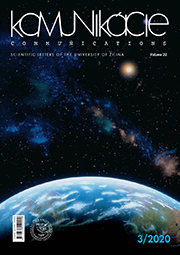Life Cycle Cost (LCC) Level of an Urban Transport Fleet with Differentiated Share of Buses with Alternative Drive Systems
Life Cycle Cost (LCC) Level of an Urban Transport Fleet with Differentiated Share of Buses with Alternative Drive Systems
Author(s): Emilia Szumska, Rafał Jurecki, Marek PawelczykSubject(s): Energy and Environmental Studies, Public Finances, Transport / Logistics
Published by: Žilinská univerzita v Žilině
Keywords: LCC; city bus; alternative drive;
Summary/Abstract: In recent years, there has been a significant increase in the number of buses operated by urban public transport companies powered by alternative fuels and equipped with alternative drive systems. In addition to economic factors, operators should also take environmental aspects into account when purchasing new vehicles. In this case, a useful criterion for selecting a vehicle is the Life Cycle Cost (LCC), which, in addition to the cost of purchasing a bus, takes into account the necessary expenses associated with its maintenance, operation, decommissioning, as well as emissions costs. This paper presents a study of the LCC values, estimated for the entire bus fleet based on several bus replacement variants, taking into account different shares of alternative buses in the transport fleet. Analyses have shown that replacing conventional buses by the compressed natural gas (CNG) powered buses will reduce life cycle cost by 27% compared to the LCC level in 2019. Increasing the share of electric buses in the fleet will significantly reduce the level of emissions of harmful substances contained in exhaust gases.
Journal: Komunikácie - vedecké listy Žilinskej univerzity v Žiline
- Issue Year: 22/2020
- Issue No: 3
- Page Range: 68-77
- Page Count: 10
- Language: English

